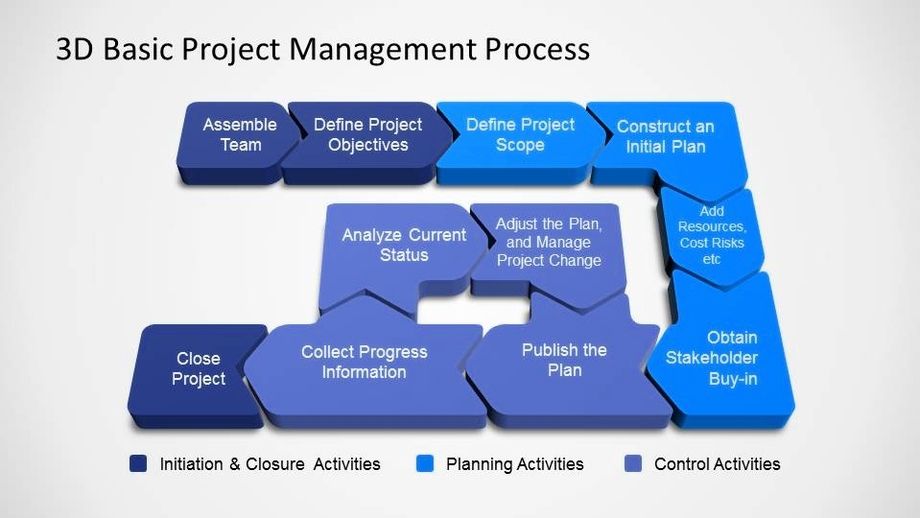
Project management is a crucial process for helping companies or organizations deliver projects on time and within the available resource constraint in today’s highly competitive global business world. The core tenets of project management are consistent even if you are managing one project at a time or multiple projects or goals at once. Whether you are new to project management or you can boast credible experience under your belt, successfully managing and completing a project on schedule and within budget is not an easy task.
The project management process generally includes four phases: initiating, planning, executing, and closing. Some may also include a fifth monitoring and controlling phase between the executing and closing stages .
Here is a brief overview of each phase:
1. Initiating: This phase involves defining the project’s scope, objectives, and stakeholders. It also includes identifying the resources required to complete the project, such as personnel, equipment, and budget .
2. Planning: In this phase, the project manager creates a detailed plan that outlines the tasks required to complete the project, along with timelines, budgets, and resource allocation .
3. Executing: This phase involves putting the plan into action by assigning tasks to team members, monitoring progress, and making adjustments as needed .
4. Closing: In this final phase, the project manager ensures that all deliverables have been completed to satisfaction, obtains sign-off from stakeholders, and conducts a post-project review to identify areas for improvement .
By following each step of this process, a project team increases the chance of achieving its goals.
